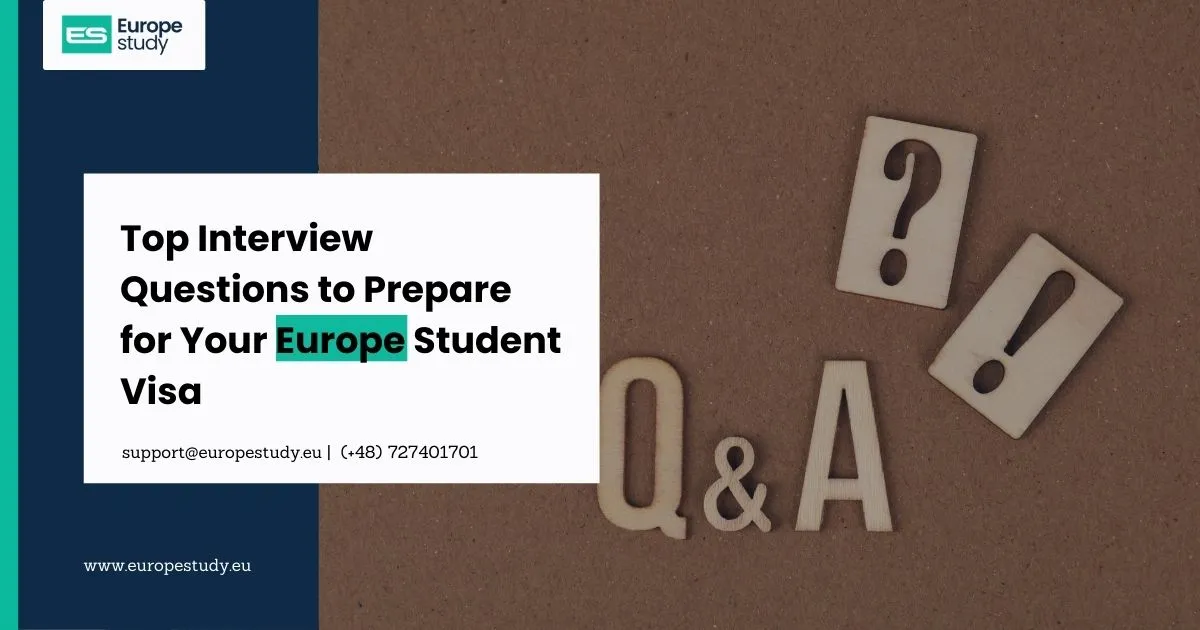
Top Interview Questions to Prepare for Your Europe Student Visa
Preparing for a student visa interview is a crucial step in your journey to studying abroad. One of the most important aspects of this interview is your ability to communicate your intentions clearly and confidently. Many students find this process challenging, but with the right preparation, you can present yourself in the best possible light. Here's a comprehensive guide to help you prepare for the most commonly asked questions during a Europe (Schengen) student visa interview.
1. Tell Me About Yourself
This is usually the first question in any visa interview. Your answer should be concise and relevant. Include key details such as your full name, hometown, educational background, any work experience, and activities you were engaged in before applying to the university. You may also include a brief statement about your family, such as, “I come from a financially stable family of three members.” Avoid going off-topic and keep the introduction professional.
2. Why Do You Want to Study Abroad Instead of India?
This question aims to understand your motivation behind choosing an international education. Highlight the benefits of studying in Europe—such as international exposure, practical learning approaches, access to globally recognized degrees, and opportunities for cultural exchange. You can also compare the cost-effectiveness of studying in Europe versus in India. For example, pursuing an MBA from a top Indian institute might cost around ₹7–10 lakhs, while in Europe, you can get an internationally accredited degree within a similar budget.
3. How Did You Hear About the University and Why Did You Choose It?
Start by explaining how you came to know about the university—whether through an educational consultant, a friend, a fair, or online research. Then, provide well-researched reasons for choosing that particular institution. Mention aspects like global ranking, accreditations, faculty expertise, course content, and student reviews. You can refer to platforms like QS World University Rankings to strengthen your response.
4. Why Did You Choose This Course, and How Will It Help Your Career?
You need to clearly justify your course selection. Connect your academic or professional background with the course you’re applying for. If you’re switching fields—say, from engineering to management—explain your interest and how the course aligns with your career goals. Your answer should show that you have a clear vision of how this education will help shape your future.
5. Are You Aware of the Cost of Living in the Country You’re Going To?
This question tests your knowledge about the country you plan to study in. Be specific—mention the average monthly cost of living in your chosen city and explain how you plan to cover it. Demonstrate financial preparedness by stating that you have enough funds or a financial plan in place.
6. Who Is Sponsoring Your Education? What Does Your Sponsor Do?
You should clearly state who will be financing your education—such as your parents or close relatives. Provide brief details about their occupation and financial background. It’s advisable not to mention more than two sponsors to avoid complications during the assessment.
7. If You Get an Opportunity to Work, Will You Take It?
This is often a trick question meant to gauge your primary intention behind studying abroad. A safe and straightforward response is: “No, I am going to focus entirely on my studies as I have sufficient funds to support myself during my stay.” This helps assure the visa officer that your primary motive is education, not employment.
Final Tips:
Practice answering these questions out loud and stay confident. Avoid memorizing responses word-for-word—instead, understand the core message you want to convey. A well-prepared and genuine approach will significantly improve your chances of acing the visa interview.





